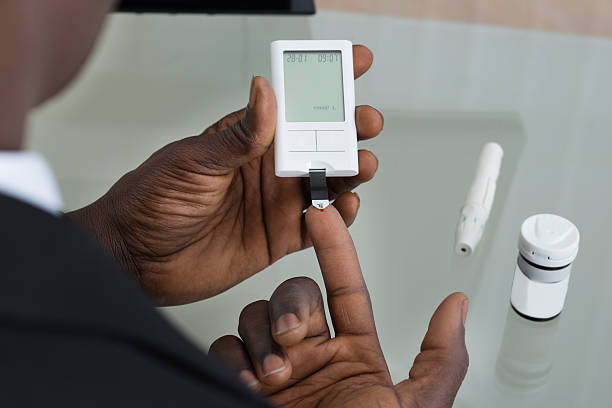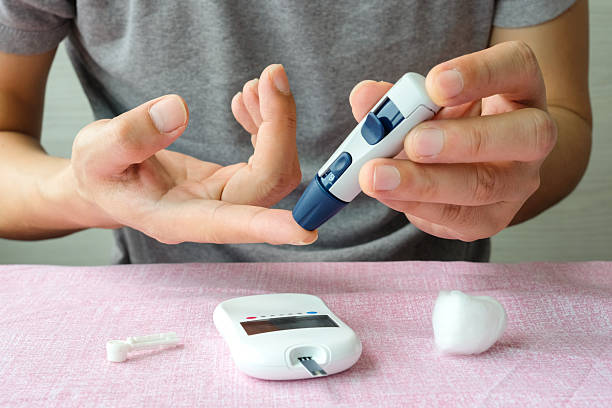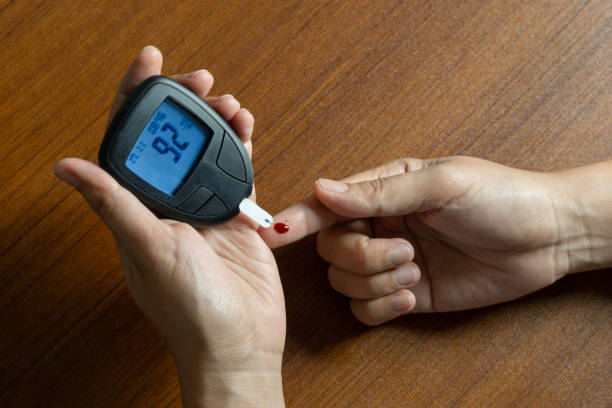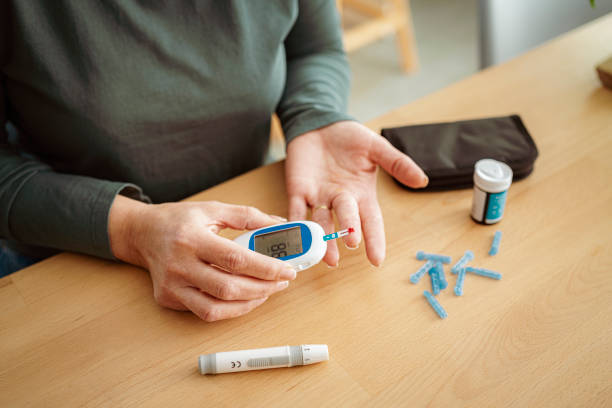Managing your blood sugar doesn’t have to feel overwhelming. Whether you have diabetes or want to lower your risk, making smart choices every day can have a big impact. In this post, we’ll explore simple and proven strategies for effective blood sugar control. You’ll discover how healthy eating, regular physical activity, better sleep, and stress management all work together to support your health. Most importantly, you’ll get practical tips you can start using today to keep your blood sugar in check and feel your best.
Why Blood Sugar Control Matters
When your blood sugar levels are too high or too low, your body can’t function properly. Over time, poor blood sugar control can harm important organs and increase the risk of serious health issues, such as:
- Type 2 diabetes
- Heart disease
- Kidney damage
- Vision problems
- Nerve damage
Keeping your blood sugar in a healthy range helps your body work at its best. It can improve your energy, protect your organs, and lower your risk of long-term health problems. By staying in control, you’re taking a big step toward a healthier future.

Eat Balanced Meals to Stabilize Blood Sugar
What you eat—and when you eat—can have a big impact on your blood sugar. Eating balanced meals throughout the day helps keep your levels steady and gives your body the fuel it needs.
Choose Complex Carbs Over Simple Carbs
Carbs aren’t the enemy, but it’s important to choose the right kinds. Simple carbs, like soda, candy, and white bread, break down fast and cause blood sugar to spike. Complex carbs, on the other hand, digest more slowly and help keep your blood sugar stable.
Some smart carb choices include:
- Whole grains like oats, quinoa, and brown rice
- Beans and lentils
- Sweet potatoes
- Fruits and vegetables with the skin on
Pairing complex carbs with protein and healthy fats can also slow digestion and support better blood sugar control.
Read more about smart carbs from the American Diabetes Association.
Add Protein and Healthy Fats
Adding protein and healthy fats to your meals can help balance your blood sugar. When you pair carbs with protein and fat, your body absorbs sugar more slowly. This helps you stay full longer, keeps your energy steady, and prevents sudden blood sugar spikes.
Good sources of protein and healthy fat include:
- Eggs
- Chicken, turkey, or tofu
- Greek yogurt
- Nuts and seeds
- Avocados
- Olive oil
Try to include a mix of these with every meal or snack. It’s a simple way to support better blood sugar control while enjoying satisfying, tasty food.
Don’t Skip Meals
Skipping meals can lead to low blood sugar, followed by sharp spikes when you eat again. This up-and-down pattern can make it harder to keep your blood sugar steady. To avoid this, aim to eat at regular times each day.
If your meals are spaced far apart, adding a healthy snack can help you stay balanced. Snacks with a mix of carbs, protein, and fat work best to keep your energy stable between meals.
Practice Portion Control
Even healthy foods can affect your blood sugar if you eat too much at once. That’s why portion control is key. Knowing what a balanced plate looks like can help you stay in control of your blood sugar and avoid overeating.
Here’s a simple guide to building a balanced plate:
- Half of your plate: Non-starchy vegetables like broccoli, spinach, cauliflower, or bell peppers
- One quarter: Lean protein such as fish, chicken, turkey, or tofu
- One quarter: Whole grains or starchy veggies like brown rice, quinoa, sweet potatoes, or corn
Using smaller plates, measuring your servings, and avoiding second helpings can make portion control easier. Over time, these small changes can make a big difference in managing your blood sugar.
Stay Active: Exercise Lowers Blood Sugar Naturally
Staying active is one of the best ways to manage your blood sugar. When you move your body, your muscles use glucose for energy. This helps lower blood sugar levels naturally and boosts your overall health.
Aim for Regular Movement
You don’t need fancy equipment or a gym membership to see results. Just 30 minutes of moderate activity five days a week can make a big difference in your blood sugar control.
Great options include:
- Brisk walking
- Swimming
- Dancing
- Biking
- Gardening
Even a short walk after meals can help your body manage glucose more effectively.
Try Strength Training
In addition to cardio, strength training is also important. Building muscle helps your body use insulin more efficiently. You can lift weights, use resistance bands, or do bodyweight moves like:
- Squats
- Lunges
- Push-ups
Aim to include strength exercises two to three times a week for the best results.
Check out the CDC’s guide to physical activity and blood sugar.

Manage Stress to Support Healthy Glucose Levels
When you’re stressed, your body releases hormones like cortisol that can raise your blood sugar. That’s why managing stress is an important part of keeping your glucose levels in check. Reducing stress not only supports blood sugar control but also improves your mood and energy.
Simple Ways to Reduce Stress:
- Practice deep breathing or meditation
- Listen to calming music
- Take breaks and get fresh air
- Write in a journal to clear your mind
- Try yoga or gentle stretching
Even spending just five to ten minutes a day on stress relief can make a big difference in how you feel—and how your body handles blood sugar.
Get Enough Quality Sleep
Sleep plays a big role in blood sugar control. When you don’t get enough rest, your body may have trouble using insulin properly, which can lead to higher blood sugar levels. Aim for 7 to 9 hours of quality sleep each night to help your body recover and stay balanced.
Tips for Better Sleep:
- Stick to a consistent bedtime and wake time—even on weekends
- Turn off screens like phones and TVs at least an hour before bed
- Keep your bedroom cool, quiet, and dark for better rest
- Avoid large meals, caffeine, and sugary drinks late in the day
Better sleep can boost your mood, energy, and blood sugar health. A good night’s rest is just as important as diet and exercise.
Learn more from the Sleep Foundation.
Monitor Your Blood Sugar Regularly
Tracking your blood sugar is an important step in understanding how your body responds to different foods, activities, and routines. Regular monitoring helps you stay on top of your health and make informed decisions about your care.
Your doctor can guide you in choosing the best method to track your blood sugar:
- Finger-stick blood glucose meter
- Continuous glucose monitor (CGM)
By keeping a log of your readings, you can identify patterns and work with your healthcare team to make smart adjustments. Regular monitoring is key to staying in control and managing your blood sugar effectively.
Limit Added Sugars and Ultra-Processed Foods
Added sugars can sneak into many packaged foods, even ones that may seem healthy at first glance. These hidden sugars can cause blood sugar spikes and contribute to weight gain. It’s important to be aware of where added sugars might be hiding in your food.
Watch out for added sugars in:
- Breakfast cereals
- Granola bars
- Salad dressings
- Yogurts with fruit
- Flavored drinks
To make healthier choices, always read food labels carefully and choose products with little to no added sugar. The World Health Organization recommends limiting added sugars to less than 10% of your total daily calories for better health.nds keeping added sugars to less than 10% of your daily calories.
Stay Hydrated with Water
Drinking plenty of water is essential for keeping your blood sugar in check. Water helps your kidneys flush out excess sugar through urine, supporting your body’s natural detox process. Aim for at least 8 cups (64 oz) of water a day, or more if you’re physically active or live in a hot climate.
Avoid sugary drinks like soda, sweet tea, and juice, as they can raise your blood sugar levels. Instead, try:
- Water with a splash of lemon or cucumber
- Sparkling water for a refreshing twist
- Unsweetened tea or coffee
Staying hydrated with these healthy options can also help keep you feeling energized and focused throughout the day.
Work with a Healthcare Team
Managing blood sugar is a personal journey, and having the right support can make all the difference. Your doctor, dietitian, or diabetes educator can work with you to create a plan that’s tailored to your lifestyle, preferences, and health goals.
They can help guide you in:
- Setting realistic blood sugar targets that work for you
- Adjusting medications or insulin as needed
- Creating a balanced meal plan that supports blood sugar control
- Understanding your lab results and what they mean for your health
By working closely with your healthcare team, you can feel more confident in your ability to manage blood sugar and improve your overall well-being.

Try These Healthy Habits Today
Adopting simple, healthy habits can go a long way in helping you manage your blood sugar. Here’s a quick recap of the best practices for blood sugar control:
✅ Eat balanced meals that include fiber, lean protein, and healthy fats to keep blood sugar steady
✅ Watch your portions and avoid skipping meals to prevent blood sugar dips and spikes
✅ Move your body every day with activities you enjoy, like walking, swimming, or dancing
✅ Practice stress-reducing activities such as deep breathing, yoga, or spending time outdoors
✅ Get plenty of quality sleep to support insulin sensitivity and overall health
✅ Check your blood sugar regularly to track how your body responds to different foods and routines
✅ Drink water and stay hydrated while avoiding sugary drinks that can spike blood sugar levels
✅ Work with a healthcare team for guidance and support in managing your blood sugar effectively
Incorporating these habits into your daily routine can help you take control of your health and feel your best.
Final Thoughts: Take Control of Your Blood Sugar, One Step at a Time
Managing your blood sugar doesn’t have to be overwhelming. By making a few simple changes to your daily habits, you can feel better, have more energy, and reduce your risk of developing serious health problems.
Start small by picking one or two tips from this post and incorporating them into your routine today. Over time, these small steps will lead to big results, helping you take control of your health and well-being.
💬 We’d love to hear from you! What’s worked for you in managing your blood sugar? Do you have any questions about your current routine? Drop a comment below and join the conversation—we’re here to support each other!

